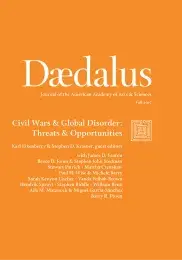Fictional States & Atomized Public Spheres: A Non-Western Approach to Fragility
This essay explains why political order in some places gives way to especially persistent conflict and prolonged state institutional collapse. State failure is rooted in decades of personalist rule, as leaders have sought to fragment and disorganize institutions and social groups that they thought would be possible bases of opposition. This problem was considered particular to sub-Saharan Africa, but now parts of the Middle East and Central Asia exhibit this connection between a particular type of authoritarian rule and state failure. State failure in these countries produces multisided warfare that reflects the fragmentation upon which prewar regimes relied for their protection. Policy-makers are thus faced with the dilemma of propping up personalist regimes that present themselves as bulwarks against disorder at the same time that their domestic strategies of governance play a central role in creating the conditions of protracted multisided warfare in the event that they fail.
Fifty years ago, many experts believed that countries like Liberia, Somalia, and the Congo faced promising futures. A World Bank mission sent to assess Liberia’s economic record reported: “The Liberia we found was strikingly different from that of only a dozen years ago. Development is now widespread and there is a genuine commitment to it on the part of the government.”1 Somalia’s Supreme Revolutionary Council, installed in a 1969 coup, impressed an experienced observer who found extensive infrastructure development and improved state service provision. “The most important thing to note about the new military regime is that it appears to be honest and public spirited,” he advised.2 One scholar praised the Congo’s rapid development and newfound political stability. “The Mobutu regime’s emphasis on economic rationality has produced positive results,” he wrote. “Since the enactment of the 1967 plan for monetary stabilization, the Congo seems to have entered a period of unprecedented prosperity.”3 . . .
To read the full essay, access the PDF.
